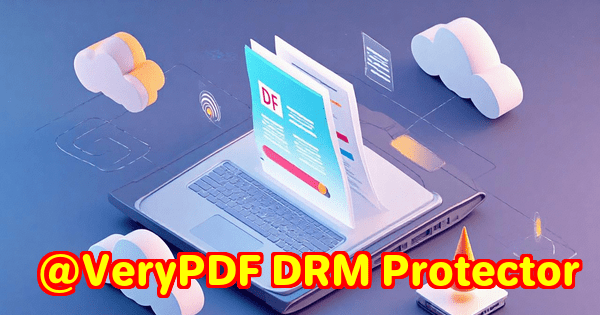Why SPLParser is Ideal for Educational Institutions Needing Batch PDF Conversion Solutions
Every Monday morning, I used to dread the pile of scanned PDFs and print spool files dumped in my inbox from our university’s admin office. Sorting, converting, and prepping these files manually felt like a black hole of wasted time. If you’re in educationwhether a school admin, IT staffer, or academic manageryou know that handling large batches of PDF and print files efficiently is no joke. Deadlines loom, files come in all shapes, and standard tools often just don’t cut it.

That’s why discovering VeryPDF SPLParser Command Line and SDK was a game changer for me. It’s a no-nonsense, batch-friendly tool built for parsing and converting PDF, PS, PCL, and SPL files with ease exactly what institutions dealing with stacks of documents need.
Why Educational Institutions Should Care About SPLParser
Let’s face it, schools, colleges, and universities generate tons of documents daily: exam papers, reports, administrative forms, transcripts, and more. Many of these come in print spool formats (like PCL and PostScript), or as scanned PDFs that need fast, accurate processing. Traditional converters either struggle with bulk files or require a lot of manual fiddling, which is costly and prone to errors.
SPLParser, however, handles batch conversion from the command line, giving you the power to automate entire workflows without babysitting the process. It’s especially great for IT teams or developers who want to integrate conversion into existing systems or build custom apps with the SDK.
What SPLParser Brings to the Table
Here’s what I found most valuable about SPLParser for educational settings:
-
Batch PDF and Print File Parsing: SPLParser isn’t limited to just PDFs. It parses PostScript (.ps), PCL, and SPL files too. That means no more hunting for different tools or plugins for each file type. I could dump a folder full of mixed file formats, and SPLParser handled them all seamlessly.
-
Page-specific Conversion: Sometimes you only need the first page or specific pages for quick previews or processing. SPLParser lets you specify
-firstpageand-lastpagein the command line, saving hours. For example, generating thumbnail previews of exam papers before archiving became effortless. -
Detailed Document Info Extraction: Using the
-infooption, you can extract metadata and print job properties, such as job name, duplex settings, number of copies, and color modes. This came in handy when auditing batch print jobs or organizing files by specific properties. -
Customizable Print Property Updates: SPLParser allows updating print properties like duplex mode, number of copies, and resolution directly in PCL and PS files. This meant we could standardize print jobs across multiple departments without reissuing the files.
-
High-Resolution Image Output: Need to convert PDFs or print files into high-quality PNG images? Just set the
-dpiand-bitcountoptions. This feature was perfect for digitizing and sharing documents visually in online portals.
Real-World Wins with SPLParser in Education
When I first integrated SPLParser into our document workflow, it was a relief to automate the batch processing of exam scripts scanned and printed in various formats. Before, I was stuck manually converting these files one by one using clunky software that crashed or mangled fonts.
With SPLParser’s command line, I scripted the conversion of hundreds of mixed-format files overnight. I could pull out the first pages as quick previews, extract metadata for indexing, and convert entire print spool files into clean PNGs or PDFs for digital archiving. This saved me days of manual work and cut down errors drastically.
Plus, the ability to update print job properties meant the print services team could align print jobs with institutional standards without disrupting the workflow. This reduced wasted paper and ink a small win that added up quickly.
How SPLParser Stacks Up Against Other Tools
I’ve tested various document converters before, but many have quirks:
-
Some only support PDFs, leaving PCL and PostScript files unsupported or needing separate software.
-
Others are GUI-based only, making automation tough or impossible.
-
Many tools mess up print properties or fail to preserve metadata.
-
Batch processing either isn’t robust or requires expensive licensing.
SPLParser’s command-line focus and SDK availability make it uniquely suited for batch workflows, especially in education environments where automation and integration matter. It’s lightweight, fast, and extremely reliable on diverse print file types. The royalty-free SDK option is a bonus if you want to embed this functionality into your own apps or management systems.
Summary: Why I Recommend SPLParser to Educational Institutions
If your school or university handles a high volume of print spool files and PDFs that need batch conversion, parsing, or property management, SPLParser is a must-have tool.
It solves practical headaches:
-
Converts diverse file formats in bulk with ease
-
Extracts detailed document info for organisation
-
Updates print job properties without reprinting
-
Supports command-line automation and integration
-
Saves time, reduces errors, and boosts productivity
I’d highly recommend SPLParser to anyone who deals with large volumes of PDFs and print files daily, especially in educational or administrative settings.
Start your free trial now and see how much time you can save: https://www.verypdf.com/
Custom Development Services by VeryPDF
VeryPDF offers tailored custom development services to suit your unique technical needs, whether you’re working on Linux, macOS, Windows, or server environments.
Their expertise covers a wide range of technologies including Python, PHP, C/C++, Windows API, iOS, Android, JavaScript, C#, .NET, and HTML5.
They develop:
-
Windows Virtual Printer Drivers that output PDF, EMF, or images
-
Printer job capture and monitoring tools for saving print jobs in various formats like PDF, PCL, TIFF, and JPG
-
Hook layers to monitor and intercept Windows APIs including file access
-
Document processing technologies for PDF, PCL, PRN, Postscript, EPS, and Office formats
-
Barcode recognition and generation, layout analysis, OCR, and OCR table recognition for scanned TIFF and PDF files
-
Report and form generators, image converters, document management, and cloud-based conversion/viewing solutions
-
PDF security, digital signatures, DRM, TrueType font tech, and more
If you need a custom solution or have specific project requirements, reach out to VeryPDF’s support center at https://support.verypdf.com/ to discuss your needs.
FAQs about VeryPDF SPLParser for Education
Q1: Can SPLParser convert print spool files from different printer brands?
Yes, SPLParser supports standard formats like PCL, PostScript, and SPL files generated by most printer drivers, including HP Universal.
Q2: Is SPLParser suitable for non-technical users?
The tool is command-line based and designed for batch automation. IT staff or developers will find it easiest, but with basic scripting knowledge, others can use it effectively.
Q3: Can I extract metadata like document titles and job properties?
Absolutely. Using the -info option, SPLParser reads and outputs metadata from PCL, PS, and PDF files.
Q4: Does SPLParser allow modifying print job properties?
Yes, you can update properties such as job name, duplex mode, copies, and resolution within PCL and PS files.
Q5: Is there a trial version available?
Yes, you can download a trial from VeryPDF’s website to evaluate SPLParser before purchasing.
Tags/Keywords
-
batch PDF conversion for education
-
SPLParser command line tool
-
educational document automation
-
print spool file processing
-
VeryPDF SPLParser SDK
-
PCL to PNG conversion
-
PostScript batch conversion
-
school document management
